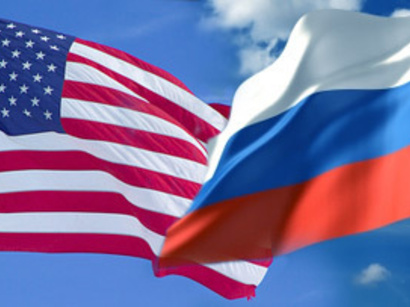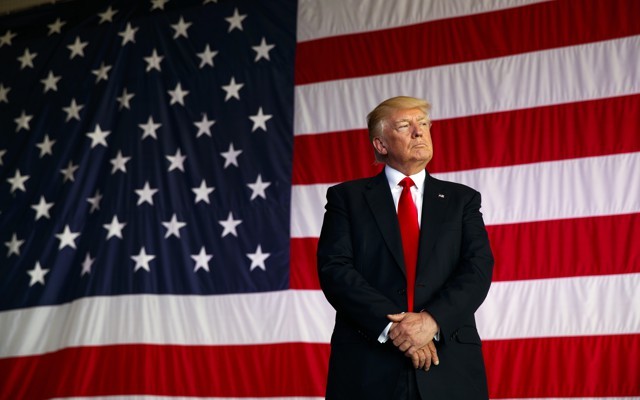The most difficult things in the world are to understand oneself, one’s intimates, and one’s country, in that order. This concerns my country, the United States of America, which is currently fraught with sound and fury, signifying nothing.
 The narrative that “a temperamentally and intellectually unqualified President of the United States is doing immense damage” is a convenient truth, but it is not a causal explanation.
The narrative that “a temperamentally and intellectually unqualified President of the United States is doing immense damage” is a convenient truth, but it is not a causal explanation.
Indeed it begs the question: What are the underlying cultural and political conditions that installed such a defective person in the most powerful office in the world?
Denial still rules this land. It has reached a new level with the widely accepted view, expressed by a leading mouthpiece for the status quo, that former FBI Director “James Comey will have to live the rest of his life knowing that he altered the course of the world.”
How, pray tell, did he achieve such a dastardly result? By “essentially determining the outcome of last year’s presidential election with his late public statements casting doubt on Hillary Clinton.”
The same progressives, in the same column, now riotously rhapsodize how “Comey is a robust and dogged former G-man…posing real peril for the Russian stooges who helped put this president in office.”
Statements like this prove that liberals live an alternate universe as much as conservatives do, and almost as much as the mob that continues to form what’s euphemistically called “Trump’s base.”
Once again, Donald Trump is not the cause of America’s decline, but an expression and catalyst of it.
The angriest I’ve ever seen people get about their country was in Russia two years before the Soviet Union fell. One incident stands out. It remains the strongest explosion of anger without violence I’ve ever witnessed in my life.
One of my hosts in Leningrad, as St. Petersburg was still called at that time, was a former championship boxer with remarkable knowledge of the great czarist palaces that surround that beautiful city.
At first I was agog at the splendor of the palaces, but after a few hours traipsing through room after room of opulence, I grew bored and asked to look at something else. They took me to Dostoevsky’s dingy flat, preserved as a miniature museum.
Afterward, on our way to another cultural attraction, the completely empty St. Isaac’s Cathedral, we began to talk a bit about politics in the car. I made some innocuous remark about how life in America isn’t wonderful, and that we have our own problems.
My translated remark triggered something in the cultured boxer, and he exploded with such fury that I literally thought that if it was possible for the human voice to break a car window, this guy was about to do so.
He raged with pent up fury over the entire communist system. I didn’t feel afraid; there was no danger he was going to punch my lights out. Though I abhorred communism, it took me a few more days of solitary immersion in Russia to understand why.
It’s hard to believe now, but Russians loved Americans back then, and wanted to emulate us. Now they detest us, and think, with reason, we’re crazy.
The unquenchable rage of Trump’s supporters reminded me of the anger that erupted at times in my Russian hosts—with a big difference.
The Russians were educated people who knew what they were angry about, whereas the Trumpian mob is projecting their hate and enjoying the spectacle of Trump demolishing the American system and international order, as if they’re watching a reality show.
So there’s a personal note in the irony of history when Comey said, in his hyped-up testimony of high political theatre in Congress, “There should be no fuzz on this whatsoever. The Russians interfered in our election during the 2016 cycle.”
Though Putin’s government did mess around the edges with the American election, the conventional/entertainment media is portraying it as a successful putsch.
In truth, the obsession with Russian interference is an excellent diversion from the deep decay in the American body politic. We infected ourselves long before we the Russians affected our election.
Americans on the left like to fool themselves into believing that Trump is an anomaly, a product of right-wing extremism and white fright. But Trump reflects the causal reality in America that gave rise to him—extreme self-centeredness, cynical transactionality, and decades of avoiding and whitewashing the darkness in American society and foreign policy.
As the meaningless political sideshow in the USA drags on, the relevance, much less supremacy of America clearly becomes history.
When Trump realizes he’s lost, and will be seen as a presidential loser, he’ll strike out and start a real war. The sovereignty and survivability of humanity is at issue.
Given the woeful and depressive atmosphere in the land, Americans would do well to reflect on the words of Islam’s greatest poet, Rumi:
Something opens our wings. Something
makes boredom and hurt disappear.
Someone fills the cup in front of us.
We taste only sacredness.
Martin LeFevre

